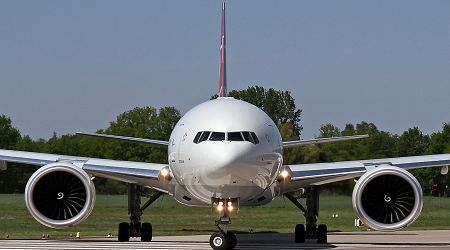Private Jet vs. First Class – Which is Worth the Cost?
6/24/20255 min read


Price Comparison: Private Jet vs. First Class
When considering travel options, the financial implications of flying via private jet versus first-class commercial flights is a critical factor. First-class ticket prices can vary significantly based on the airline, timing, and route. For instance, domestic first-class tickets can range from $500 to $1,500, while international routes may see fares from $2,000 to over $10,000. These costs accumulate quickly, especially for frequent travelers. A business traveler flying round-trip from New York to Los Angeles might spend upwards of $3,000 just for a first-class ticket.
In contrast, private jet costs are often calculated on an hourly basis. The hourly rates for chartering a private jet can fluctuate widely, depending on the type of aircraft and the duration of the flight. On average, the rates can range from $2,000 to $10,000 per hour. For example, a round trip flight from New York to Los Angeles in a mid-size jet with a flight time of approximately six hours could cost around $12,000 to $60,000 inclusive of taxes and fees. This seemingly higher upfront cost can often be offset if multiple passengers share the expense or if the traveler requires the added flexibility and efficiency private aviation offers.
However, assessments must also include factors such as time savings and convenience. Private jets can drastically reduce travel time by allowing for direct flights to more destinations and extracting travelers from lengthy airport processes, making the effective cost of a private travel experience potentially more reasonable. Thus, while the per-ticket cost for first-class seats might seem economical at first glance, the expenses can accumulate quickly for frequent travelers. Therefore, understanding the intricacies of both travel methods is vital when deciding on the most beneficial option for one's needs.
Time Savings: Efficiency of Private Jets
When evaluating the efficiency of private jets compared to first-class commercial flights, one of the most significant advantages lies in the time savings they offer. Private jet travel allows for a streamlined experience that can dramatically reduce the duration of a journey. Unlike first-class flights, where passengers are subjected to lengthy airport processes, private jet travelers can often bypass many of these delays. For instance, passengers flying privately can arrive at the airport minutes before their scheduled departure, as they are not reliant on the earlier arrival times typically required for commercial flights.
Check-in for private jets is considerably more efficient. With designated terminals, private jet travelers can avoid the long lines and security procedures common in commercial air travel. In contrast, first-class passengers still endure the traditional check-in process, which might include queuing for ticketing, security screening, and boarding. Moreover, the boarding procedure for private jets is notably faster; passengers can board directly on the tarmac without the need to navigate through crowded terminals or waiting areas.
Another important factor is the ability of private jets to access a wider range of airports, including smaller ones that are often closer to the ultimate destination. This capability allows for direct flights to various locations, thereby eliminating layovers and further reducing total travel time. For example, a corporate executive could depart from a private terminal in a city center and arrive closer to their final business meeting location, rather than flying into a major international airport followed by an additional commute.
In summary, the efficiency of private jets translates to significant time savings, making them a compelling alternative to first-class commercial air travel. By enabling quicker boarding and direct access to more airports, private jet travel aligns closely with the needs of time-sensitive passengers.
Privacy and Exclusivity: The Appeal of Private Travel
One of the most compelling advantages of flying on a private jet lies in the unparalleled privacy it offers. Unlike first-class commercial travel, where passengers often find themselves in close proximity to numerous other travelers, private jets provide an exclusive setting that prioritizes personal space and comfort. This level of seclusion is increasingly important for individuals who seek to conduct sensitive business discussions or simply wish to enjoy a quiet and uninterrupted travel experience.
The layout of a private jet allows for a tailored environment that can accommodate a limited number of passengers, ensuring that the journey is peaceful and devoid of the usual hustle and bustle found in larger aircraft. The absence of crowds translates into shorter boarding times, eliminating the stress associated with busy terminal navigation. Furthermore, there is no need to share common areas, rendering the entire travel experience more intimate and luxurious.
Frequent travelers who have opted for private jets often express their appreciation for the feelings of exclusivity and prestige associated with this mode of transport. Their testimonies highlight a significant emotional value that enhances the overall travel experience. One such traveler noted, "Flying privately allows me to focus on what truly matters, whether it's important meetings or precious moments with loved ones." The ability to customize the journey extends from the onboard catering to the aircraft's interior ambiance, underscoring the advantage of privacy and personalized service.
In stark contrast, first-class travel, while certainly more comfortable than economy class, often does not provide the same level of intimacy. The close presence of fellow passengers can detract from the overall experience and limit the sense of exclusivity that many high-profile travelers desire. Ultimately, the privacy and exclusivity of private jet travel not only enhance comfort but also foster a unique atmosphere conducive to personal and professional endeavors.
When Private Jets Make Financial Sense
Choosing between a private jet and first-class commercial flights involves evaluating several factors that impact overall costs and convenience. For corporate travel, private jets often prove to be more financially feasible, especially for businesses that prioritize productivity and time management. By eliminating long airport security lines and delays, executives can maximize their time by conducting meetings mid-flight, ultimately saving hours that would otherwise be lost. Reports indicate that companies utilizing private aviation can achieve a significant return on their investment, often recouping flight expenses through enhanced operational efficiency.
Family vacations can also present scenarios where private jets make an economical choice. For larger families or groups traveling together, the cost of several first-class tickets can quickly accumulate, often exceeding charter costs for a private jet. In addition, private flights offer the convenience of flying directly to smaller airports closer to the destination, thereby reducing travel time and unnecessary layovers. Many families find that the flexibility in scheduling and the comfort of privacy make private jets an appealing option, particularly for trips to remote or exclusive locations.
Moreover, there are instances, such as medical needs, where private jets become indispensable. Patients requiring urgent medical attention can benefit from the speed and ease of access private aviation provides. Statistics show that air ambulances, a section of private aviation, often serve critical needs where time is of the essence, further justifying their higher cost in certain situations. Experts argue that while first-class offers comfort, private jets provide a safety net for travelers in scenarios where every minute matters.
In conclusion, while the upfront cost of private jets may appear daunting, various situations such as corporate travel, family vacations, and medical emergencies can render them a practical and financially sensible option compared to first-class airline tickets.
Luxury Conceirge for India's Elite Travelers.
C-160, MANSAROVER GARDEN, NEWDELHI-110015
11 RUE DE LA REYNIE, PARIS 75004, FRANCE
T-C-102, BUSINESS BAY, SJ ROAD, DUBAI
REACH US / SUBSCRIBE
care@dotrip.in
011-45637171 +91-8745000071
©DOTRIP 2025. All rights reserved.


